Fleurs du Mal Magazine


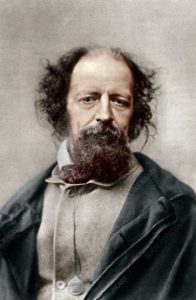
Break, Break, Break
Break, break, break,
On thy cold gray stones, O Sea!
And I would that my tongue could utter
The thoughts that arise in me.
O, well for the fisherman’s boy,
That he shouts with his sister at play!
O, well for the sailor lad,
That he sings in his boat on the bay!
And the stately ships go on
To their haven under the hill;
But O for the touch of a vanish’d hand,
And the sound of a voice that is still!
Break, break, break
At the foot of thy crags, O Sea!
But the tender grace of a day that is dead
Will never come back to me.
Alfred Lord Tennyson
(1809-1892)
Break, Break, Break
• fleursdumal.nl magazine
More in: Archive S-T, Archive S-T, Tennyson, Alfred Lord

freda kamphuis
kanteling
• fleursdumal.nl magazine
More in: *Concrete + Visual Poetry P-T, Archive K-L, Archive K-L, Freda Kamphuis, Kamphuis, Freda
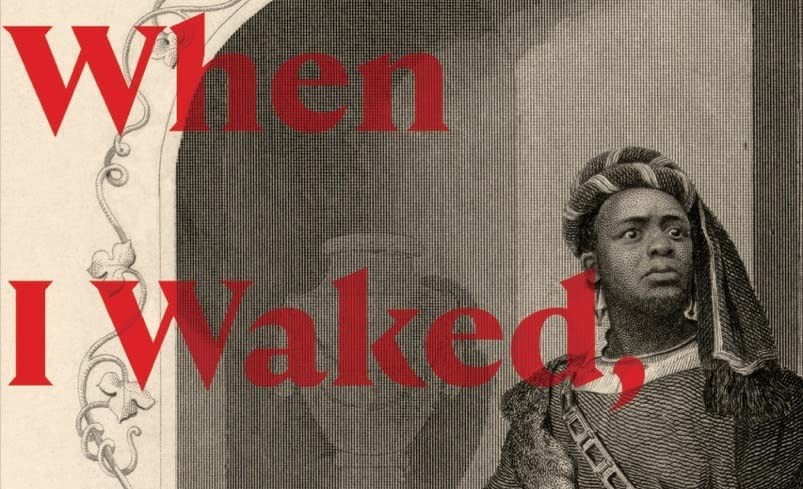
A dynamic, moving hybrid work that celebrates Black youth, often too fleeting, and examines Black lives lost to police violence.
In this astonishing volume of poems and lyric prose, Whiting Award–winner A. Van Jordan draws comparisons to Black characters in Shakespearean plays―Caliban and Sycorax from?The Tempest, Aaron the Moor from?Titus Andronicus, and the eponymous antihero of? Othello―to mourn the deaths of Black people, particularly Black children, at the hands of police officers. What do these characters, and the ways they are defined by the white figures who surround them, have in common with Tamir Rice, Trayvon Martin, and other Black people killed in the twenty-first century?
Balancing anger and grief with celebration, Jordan employs an elastic variety of poetic forms, including ekphrastic sestinas inspired by the photography of Malick Sidibé, fictional dialogues, and his signature definition poems that break down the insidious power of words like “fair,” “suspect,” and “juvenile.” He invents a new form of window poems, based on a characterization exercise, to see Shakespeare’s Black characters in three dimensions, and finds contemporary parallels in the way these characters are othered, rendered at once undesirable and hypersexualized, a threat and a joke.
At once a stunning inquiry into the roots of racist violence and a moving recognition of the joy of Black youth before the world takes hold, When I Waked, I Cried to Dream Again expresses the preciousness and precarity of life.
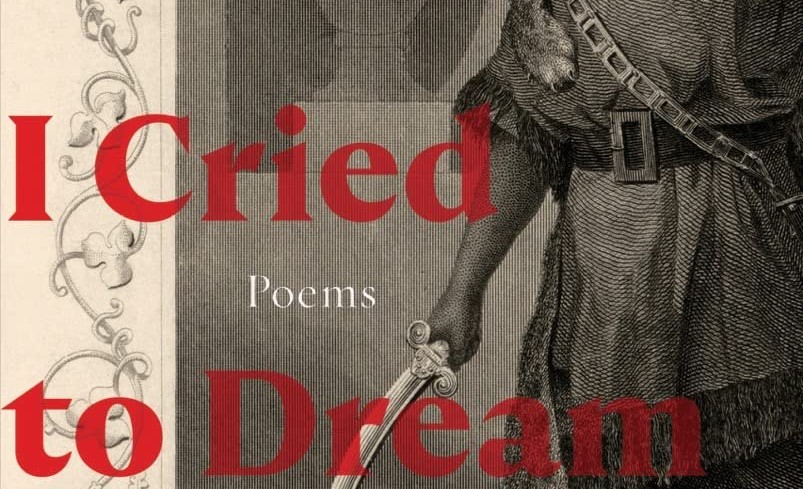
A. Van Jordan is the author of four collections: Rise, which won the PEN/Oakland Josephine Miles Award (Tia Chucha Press, 2001); M-A-C-N-O-L-I-A, (2005), which was listed as one the Best Books of 2005 by The London Times; Quantum Lyrics, (2007); and The Cineaste, (2013), W.W. Norton & Co. Jordan has been awarded a Whiting Writers Award, an Anisfield-Wolf Book Award, and a Pushcart Prize. He is also a recipient of a Guggenheim Fellowship (2007), a United States Artists Fellowship (2009), and a Lannan Literary Award in Poetry (2015).
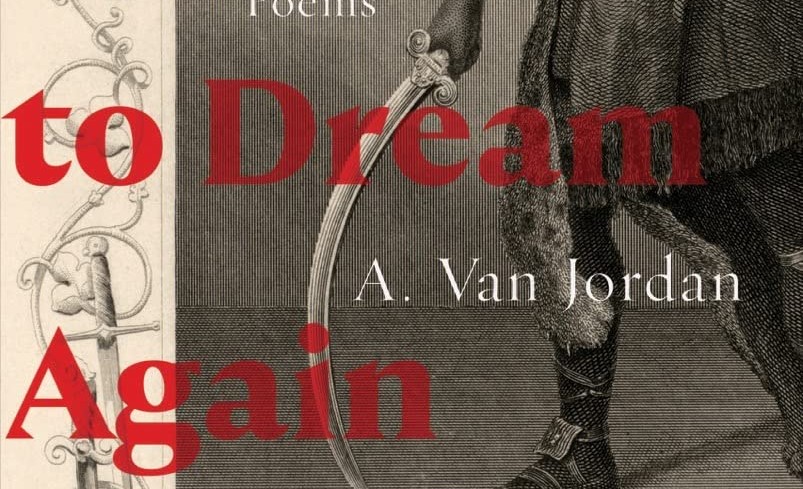
When I Waked, I Cried To Dream Again:
Poems by A. Van Jordan
Publisher: W. W. Norton & Company (June 6, 2023)
Language: English
Hardcover
144 pages
ISBN-10 : 1324050934
ISBN-13 : 978-1324050933
Price $26.95
fleursdumal.nl magazine
More in: #Modern Poetry Archive, - Book News, - Bookstores, Archive I-J, Archive I-J, Racism
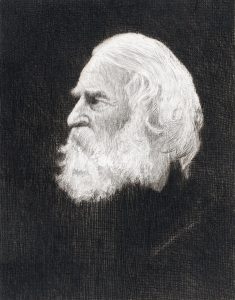
Aftermath
When the summer fields are mown,
When the birds are fledged and flown,
And the dry leaves strew the path;
With the falling of the snow,
With the cawing of the crow,
Once again the fields we mow
And gather in the aftermath.
Not the sweet, new grass with flowers
Is this harvesting of ours;
Not the upland clover bloom;
But the rowen mixed with weeds,
Tangled tufts from marsh and meads,
Where the poppy drops its seeds
In the silence and the gloom.
Henry Wadsworth Longfellow
(1807–1882)
Aftermath
• fleursdumal.nl magazine
More in: Archive K-L, Archive K-L, Longfellow, Henry Wadsworth
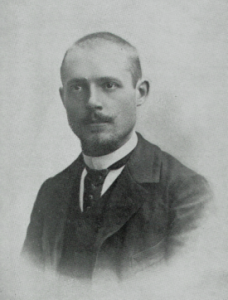
Paris double galère
Depuis le Point-du-Jour jusqu’aux cèdres bibliques
Double galère assise au long du grand bazar,
Et du grand ministère, et du morne alcazar,
Parmi les deuils privés et les vertus publiques ;
Sous les quatre-vingts rois et les trois Républiques,
Et sous Napoléon, Alexandre et César,
Nos pères ont tenté le centuple hasard,
Fidèlement courbés sur tes rames obliques.
Et nous prenant leur place au même banc de chêne,
Nous ramerons des reins, de la nuque, de l’âme,
Pliés, cassés, meurtris, saignants sous notre chaîne ;
Et nous tiendrons le coup, rivés sur notre rame,
Forçats fils de forçats aux deux rives de Seine,
Galériens couchés aux pieds de Notre Dame.
Charles Péguy
(1873 – 1914)
Paris double galère
1913
• fleursdumal.nl magazine
More in: # Classic Poetry Archive, Archive O-P, Archive O-P, FDM in Paris, Peguy, Charles, WAR & PEACE

Gedicht über Nachtwirkungen
Noch nicht Tag! Die fratzenhafte Nacht
hat mich Stück für Stück entzweigerissen.
Wehe Striemen drücken mir die Kissen,
jede Falte hat mich wund gemacht.
Und der Träume quälerische Schwere:
Wollust, Ekel, Schmerzen, Tränen, Mord,
treibt mein Herz auf einem dunklen Meere
wie ein purpurrotes Segel fort.
Bin ein zitternd Geflecht von Nerven,
allem Bösen in die Hand gegeben,
Und die Schatten sind wie Messerschärfen,
die von meinem Zucken trunken leben.
Und ich möchte in das Dunkel schrein.
Aber meine Stimme ist nicht mehr.
Wilder Bilder ewige Wiederkehr,
stumm, gestaltlos, haltlos muss ich sein!
Hans Ehrenbaum-Degele
(1889 – 1915)
Gedicht über Nachtwirkungen
• fleursdumal.nl magazine
More in: #Experimental Poetry Archive, *War Poetry Archive, - Archive Tombeau de la jeunesse, Archive E-F, Archive E-F, Expressionism, Modernisme
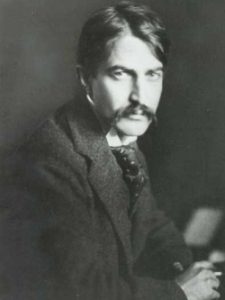
Behold, the grave of a wicked man
Behold, the grave of a wicked man,
And near it, a stern spirit.
There came a drooping maid with violets,
But the spirit grasped her arm.
“No flowers for him,” he said.
The maid wept:
“Ah, I loved him.”
But the spirit, grim and frowning:
“No flowers for him.”
Now, this is it —
If the spirit was just,
Why did the maid weep?
Stephen Crane
(1871 – 1900)
Behold, the grave of a wicked man
• fleursdumal.nl magazine
More in: *War Poetry Archive, Archive C-D, Archive C-D, Stephen Crane

Les regrets
Justine est seule et gémissante,
Et mes yeux avec intérêt
La suivent dans ce lieu secret
Où sa chute fut si touchante.
D’abord son tranquille chagrin
Garde un morne et profond silence :
Mais des pleurs s’échappent enfin,
Et coulent avec abondance
De son visage sur son sein ;
Et ce sein formé par les Grâces,
Dont le voluptueux satin
Du baiser conserve les traces,
Palpite encore pour Valsin.
Dans sa douleur elle contemple
Ce réduit ignoré du jour,
Cette alcôve, qui fut un temple,
Et redit : Voilà donc l’Amour !
Évariste de Parny
(1753-1814)
Les regrets
Poésies fugitives (1787)
• fleursdumal.nl magazine
More in: # Classic Poetry Archive, Archive O-P, Archive O-P
Thank you for reading Fleurs du Mal - magazine for art & literature